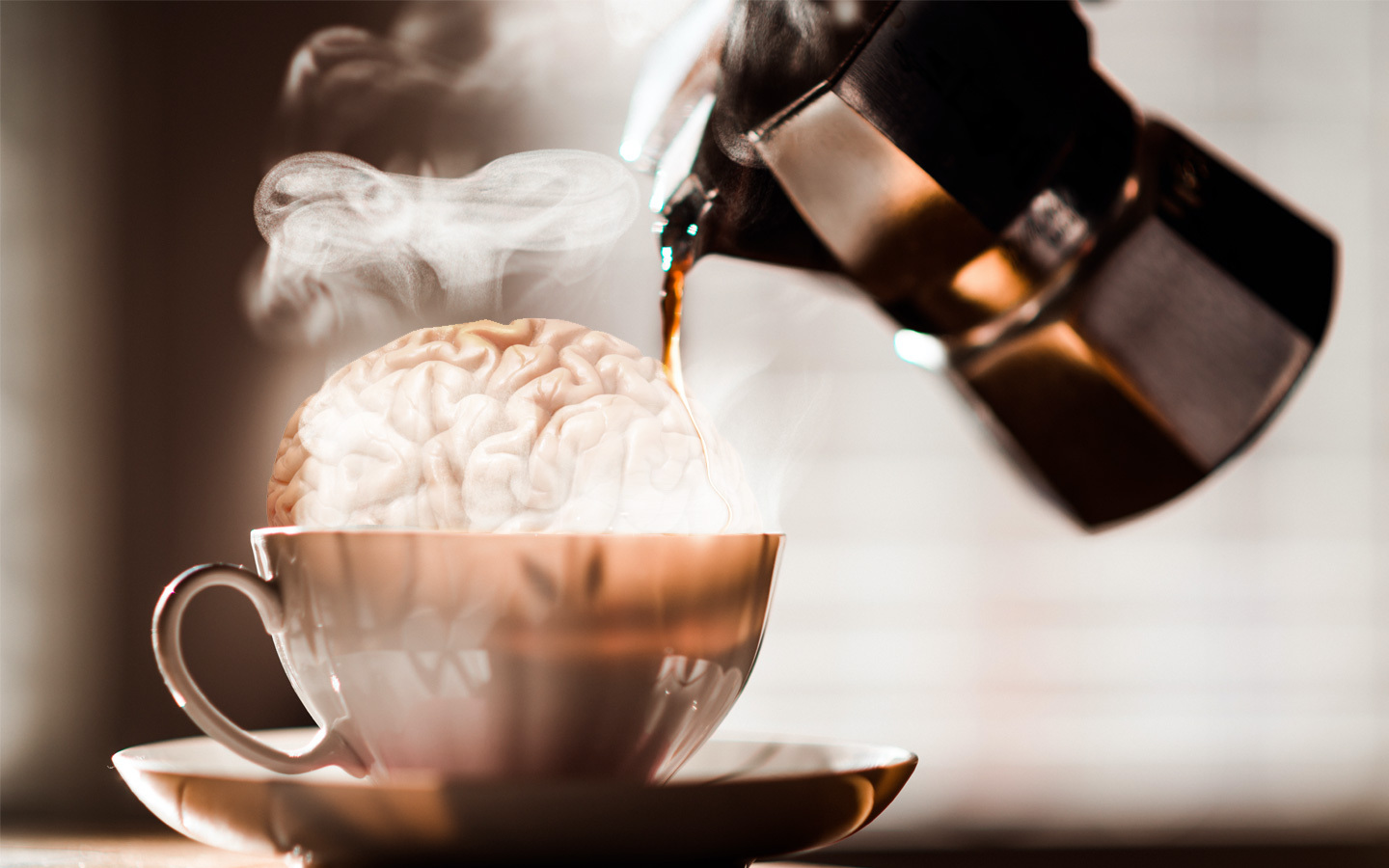Studying the effects of coffee on the brain has gained quite a bit of momentum in the scientific community in the past year or so, with new research papers being published finding links between coffee consumption and more efficient brain activity. Some have even found that coffee could be altering how our brains run for the better.
Continuing this trend, researchers from the Universities of Strasbourg and Lille, both in France, have found that caffeine may have “long-lasting changes in the brain” and how it operates.
Published in the Journal of Clinical Investigation, the researchers came to their findings by feeding caffeine-infused water to lab mice over the course of a two-week period of time. When the team extracted the mice’s hippocampus—the “brain region crucial for learning and memory, per Nature—they found that the ones given caffeine had “changes in gene activity in many types of brain cell.” In particular, researchers found that there was a decrease in protein synthesis involved in metabolism and an increase in “neuronal signaling and plasticity” synthesis. In layperson terms, it means that the neural networks in the brain were growing and reorganizing, which allows one to learn new things and enhance cognitive ability, among other benefits.
Researchers found that the neural benefits of caffeine didn’t stop when consumption did, but persisted in some mice even after they “had been denied caffeine” for a two-week period.
Further, the study’s authors noted that the caffeinated mice saw a boost in gene activity involved with the processes of memory formation after a learning task than their non-caffeinated counterparts. These findings, according to the researchers, point to caffeine’s causing long-term alterations to brain function.
Unlike past studies, this latest work sets out to establish more than just an observational link between caffeine and brain functionality by examining prior studies through a new lens, but instead looks to find a causal connection. And while there is still more work that needs to be done in order to conclusively establish some sort of causality, it’s an exciting step forward in our understanding of the relationship between coffee and the brain and is Reason #985 for Why I’ll Never Stop Drinking Coffee (But I Wasn’t Going To Anyway Just Now Science Says It’s Cool).
Zac Cadwalader is the managing editor at Sprudge Media Network and a staff writer based in Dallas. Read more Zac Cadwalader on Sprudge.

























